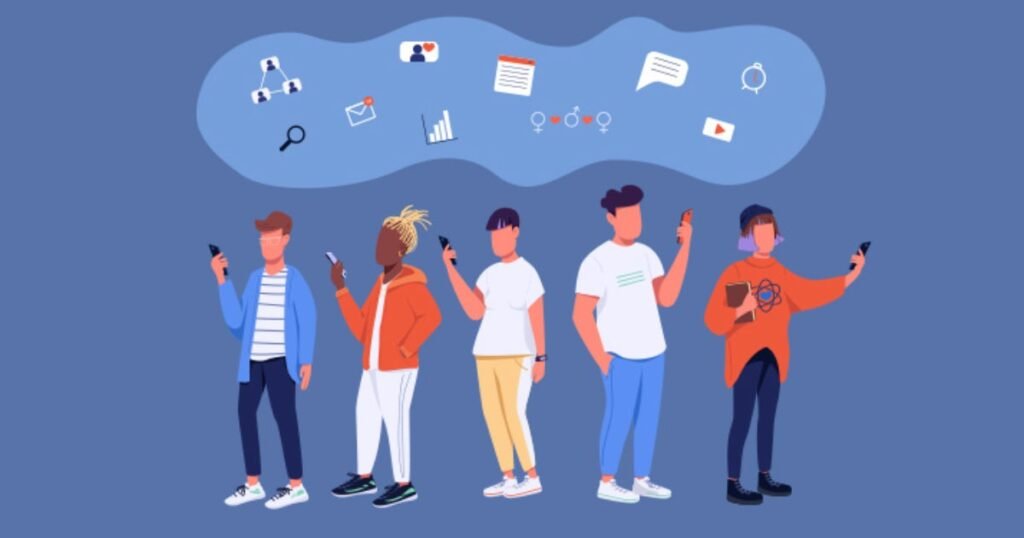Every new generation enters the workforce with distinct perspectives shaped by their backgrounds and cultures. Millennials and Gen-Zers are more concerned with work-life balance and changing the world than Baby Boomers are with job security. You must know the tips for leaders to connect with millennials.
Baby Boomers (15 percent), Gen-Xers (31 percent), Millennials (36 percent), and Gen-Zers (18 percent) make up the workforce of today. As Baby Boomers retire and leave the workforce, Millennials and Gen-Zers will increasingly fill the void, and their new perspective on technology and workplace culture will shape how we work in the years to come.
Young people, who are digital natives and purpose seekers, require a unique language for communication. If you are a leader, here are some effective strategies to help you interact with the Millennials and Gen-Zers in your company.
How To Connect With Millennials

1. Understand Their Motivations
One of the tips for leaders to connect with millennials is that fair pay, openness, flexibility, professional advancement, and work-life balance are all things that millennials want. Above all, however, people want to work for an organization that upholds their ideals.
Equitable Payment & Compensation
Paying your millennial employees what they are worth is essential if you want to make sure they are committed to your company’s main goals. Millennials are more inclined to discuss pay candidly with their colleagues and are adept at researching wage ranges. They are probably already searching for a new job, potentially with one of your rivals, if you are underpaying them.
To prevent this, find a reasonable range for roles on your payroll by using a salary calculator that lets you compute compensation by job title and region.
Being Encouraged and Appreciated
Beyond pay, millennials want to feel appreciated by their employers. They want professional growth, which includes mentorship and upskilling possibilities. Work-life balance and well-being are both impacted by feeling appreciated. Flexibility, paid time off (PTO), and significant healthcare benefits are important to many millennials.
Lastly, it’s critical to remember that millennials grew up in a period of economic and political upheaval when managing them. They want to work for a company that prepares for obstacles via organizational contingency planning and employee assistance programs because they recognize that hardship and setbacks are unavoidable.
2. Establish a Workplace Driven by Values
The majority of millennials want their employment to have a purpose. Employers that want tips for managing millennials must take advantage of this desire by identifying a social purpose that aligns with their business’s offerings.
An emphasis on social justice or the environment might be a logical choice for certain companies. For others, it might be more sensible to provide their staff members chances to become active in the neighborhood by offering paid volunteer hours or collaborating with nearby nonprofits.
Whatever path you choose, include these higher ideals into the fundamental goals of your business and provide your staff a range of opportunities to interact and work toward upholding and advancing those ideals.
3. Be Open and Honest
Open and honest communication is essential for fostering a positive and productive work environment, valued by employees across all age groups. However, it is particularly crucial when it comes to millennials. This generation seeks regular feedback and transparency from their employers, wanting to understand how they are performing and how they can improve.
Millennials tend to appreciate constructive criticism and praise alike, as it helps them feel more engaged and motivated at work. Furthermore, in today’s fast-paced, ever-evolving job market, young professionals are more informed than ever about the numerous career opportunities available to them. This awareness means they are likely to move on quickly if they feel unsupported or undervalued.
Therefore, leaders must be as transparent and communicative as possible, establishing clear expectations and offering consistent feedback. By doing so, employers can not only improve performance but also build loyalty, fostering a sense of trust and commitment in their younger workforce.
4. Commit to DEI (Diversity, Equity, And Inclusion)
Following the trend set by millennials, Gen Z workers are even more diverse and inclusive in their values. They are deeply committed to diversity, equity, and inclusion (DEI), and their expectations from employers reflect this. If your company’s DEI efforts are superficial or merely for show, Gen Z workers will quickly see through it.
These employees are likely to reject job offers from companies they perceive as insincere or not genuinely committed to promoting DEI. Moreover, if they join your organization and feel that DEI is not a true priority, they will likely disengage and actively seek to leave. To successfully engage this generation and retain top talent, businesses must go beyond just lip service and take tangible actions to promote an inclusive culture.
One effective strategy is to form employee resource groups (ERGs) to address various aspects of DEI. This allows businesses to tap into the passion and dedication of millennial and Gen Z employees, fostering an environment of inclusion that can enhance market share and profitability.
5. Learn About Millennials’ Favorite Work Styles
As one of the best tips for leaders to connect with millennials, remember that, to do tasks, millennials often rely on technology. Compared to earlier generations, they also like working in groups.
Optimize Existing Technology
Millennials, the first generation of digital natives, are adept at using technology to expedite procedures. They are also aware of how your target market and clients are most likely to use technology to locate and use your goods and services. Trust them to come up with creative methods to improve and use their digital expertise to increase your bottom line.
The educational setting in which millennials were raised emphasized group projects as a successful teaching strategy. They thus think that working in groups enables them to get knowledge from others and improve their decision-making. Establishing a collaborative corporate culture should be the main goal while thinking about how to manage millennials.
Provide Adaptability
A lot of millennials evaluate success based on their ability to complete tasks rather than how long they spend at a desk during strict work hours. Permitting remote and hybrid work arrangements demonstrates trust and is probably met with a high level of concentration and output.
Make Use of Tech Tools
Give millennials project management software and a range of digital collaboration tools so they can interact with team members. Utilize their technical expertise and keen awareness of human interaction with technology to propel innovation and product creation.
6. Provide Feedback
The stereotype that millennials require constant handholding is not only inaccurate but also unfair. Like any other generation, millennials seek autonomy and the freedom to work independently. They want to contribute in meaningful ways and make decisions without being micromanaged. However, this desire for independence does not mean they do not value guidance.
Millennials place a high emphasis on personal and professional development. They understand that growth comes from continuous learning and constructive feedback. This is where targeted mentorship programs become crucial. Millennials appreciate mentorship because it helps them gain insights, improve their skills, and navigate career challenges effectively.
Constructive criticism is also important to them, as it provides an opportunity to identify areas for improvement and enhance performance. By combining autonomy with the right level of support and development, employers can create an environment where millennials feel empowered, engaged, and motivated to succeed in their roles.
7. Avoid Assuming That Every Millennial Is The Same
Remember, one of the vital tips for managing millennials is that there isn’t a single set of universally applicable insights that can address every facet of millennial management. They are the biggest generation in the United States, with a little over 72 million people between the ages of mid-adulthood and early middle age.
Millennials are also the most varied group of workers the market has ever seen, except for Gen Z. They come from a wide variety of cultures and have different degrees of education and experience. Getting to know them personally and checking in with them often is the finest management strategy for optimizing their potential.
Millennials, more than previous generations, do not do well in isolated environments. You can retain and assist every person you manage from this adaptable, tech-savvy, team-focused, values-driven generation by offering flexible procedures and a broad range of perks.
8. Take Up a Flexible Leadership Approach
Instead of micromanagers constantly dictating how tasks should be done, millennials tend to thrive under leaders who inspire innovation and creativity. They prefer leaders who trust their abilities, provide guidance when needed, and encourage them to think critically about how to solve problems or improve processes.
This type of leadership fosters a sense of autonomy, allowing employees to contribute their ideas and find more efficient ways to accomplish tasks. By stepping away from micromanagement, you create an environment where employees feel empowered to take ownership of their work and adjust to changing circumstances.
This approach not only boosts morale but also drives productivity, as employees are more likely to take initiative and explore new ways to overcome obstacles. Ultimately, adopting a leadership style that values flexibility and trust over control positions your business for long-term success by fostering a culture of innovation and adaptability. That’s one of the best tips for leaders to connect with millennials.
Why Connecting with Millennials is Vital in The Workplace
Millennials have become a significant part of the workforce. It is estimated that millennials will make up over 75% of the global workforce. With such a large presence, connecting with millennials is not just beneficial; it’s essential for the success of any business.
One of the key reasons connecting with millennials is so important is their value-driven approach to work. Millennials are known for prioritizing purpose and meaning in their careers. They seek employers who align with their values, especially when it comes to diversity, equity, and inclusion (DEI). Companies that embrace and actively promote these values are more likely to attract and retain millennial talent.
Moreover, millennials thrive in environments that offer autonomy and opportunities for personal growth. They prefer workplaces that trust them to take ownership of their projects while also providing opportunities for continuous learning. This generation values transparency and regular feedback, as they want to understand their performance and how they can improve.
As a result, open communication and mentorship programs are crucial for keeping millennials engaged and motivated. Technology also plays a significant role in the millennial workforce. Having grown up in the digital age, millennials are tech-savvy and expect to work in environments that leverage modern tools and platforms to enhance productivity and collaboration.
Finally, one of the tips for leaders to connect with millennials is that millennials are not just looking for a job—they’re looking for a career path that offers advancement and fulfillment. Organizations that invest in their development through training, career progression, and work-life balance will see greater loyalty and higher retention rates.
In conclusion, businesses that understand and connect with millennials on a deeper level can foster a more engaged, motivated, and productive workforce, leading to long-term success.
FAQ
Q: What should executives take into account while collaborating with Millennials?
A: To lead millennials, you need to have empathy. They believe that organizations that aim for empathic leadership produce competent people managers who can hear and comprehend their staff. In the end, this empathy enhances employee productivity and workplace culture.
Q: How can one interact with millennials most effectively?
A: To interact with them in their “native” setting, think about using digital technologies like video conferencing and instant messaging. Millennials may have short attention spans because they are used to obtaining information rapidly. When speaking with them, be straightforward and concise.
Q: What are the values of millennials?
A: The changing ideals and ambitions of millennials have a significant impact on their decisions and actions. This generation has a strong desire for control, success, and recognition and places a high value on influence, accomplishment, and authority.












Heya i’m for the first time here. I came across this board and I to find It really useful & it helped me out much. I hope to provide something again and aid others such as you helped me.
Welcome! I’m really happy to hear you found it useful. Your kindness to give back is wonderful—together we can all help each other grow!
Hi Team at Futuregrowacademy,
I hope this message finds you well.
I’m reaching out because I have a keen interest in contributing a guest post to your website. As a writer who specializes in the space, I believe I can create content that drives traffic and truly resonates with your readers.
I’d be happy to provide a complimentary guest post, tailored specifically for your audience’s interests, that would fit perfectly alongside content like your article, Future Grow Academy.
If you’re open to this idea, I can share some topic suggestions that I think would perform well for you.
Looking forward to your response.
Best,
Kathelene.
Hi Kathelene,
Thank you for reaching out and showing interest in contributing to Future Grow Academy. We appreciate your offer to provide a guest post tailored to our audience.
Please feel free to share your topic suggestions.
Looking forward to hearing from you.
Best regards,
Dr. Ankit Sharma
I’ve been absent for some time, but now I remember why I used to love this website. Thanks, I’ll try and check back more often. How frequently you update your website?
Welcome back — it’s great to have you here again! 😊 I’m really glad the site left a lasting impression. Content updates happen regularly to keep things fresh and relevant, often weekly or as new insights and topics arise.
Wow, what an absolutely fantastic read! Super insightful and engaging from start to finish. Loved every bit of it—keep posting gems like this!
Thank you so much! I’m really glad you enjoyed it—it means a lot. I’ll definitely keep sharing more like that. Stay tuned!